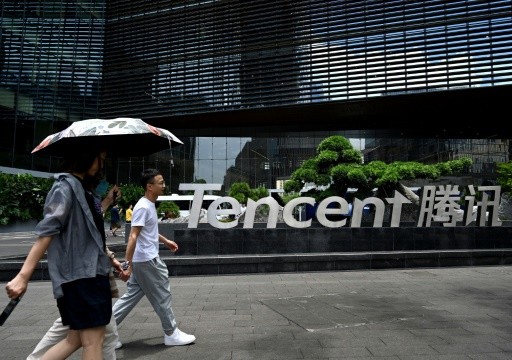China antitrust regulator blocks Tencent gaming site merger

China's financial regulator has blocked a merger of the nation's two largest video game live-streaming sites planned by tech giant Tencent over antitrust concerns, it said Saturday.
Beijing has launched a major crackdown on the biggest players in its tech sector after years of runaway growth and lax regulation, partly due to fears over their growing influence and the security of troves of sensitive consumer data.
Analysts have estimated the planned merger of live streaming services Huya and Douyu could have brought the combined platforms' domestic market share to between 80 to 90 per cent.
"If Huya and Douyu merged, that would... further strengthen Tencent's dominant position in the video game live-streaming market," Beijing's State Administration for Market Regulation (SAMR) said in an online statement.
"This has the effect of eliminating or restricting competition, is not conducive to fair market competition ... and is not conducive to the healthy and sustainable development of the online gaming and video game live-streaming market."
The blocked merger comes shortly after regulators abruptly announced a cybersecurity review into ride-hailing app Didi Chuxing on the heels of a U.S. IPO that raised $4.4 billion.
Plans for the deal were initially announced by Tencent last October, but SAMR said it would undertake an antitrust review into the merger in December.
The same month, it announced an antitrust investigation into e-commerce giant Alibaba, whose fintech arm Ant Financial's bumper IPO was shelved at the last minute by regulators in November.
The company was later slapped with a record 18.2 billion yuan ($2.78 billion) fine for anti-competitive practices.
Tencent currently has a majority stake in Huya and a 38 per cent stake in Douyu, and the merger was set to grant it majority control over the combined entity.
Both Huya and Douyu are listed in the U.S., with market caps of $3.57 billion and $1.77 billion respectively.
Source: japantoday.com
